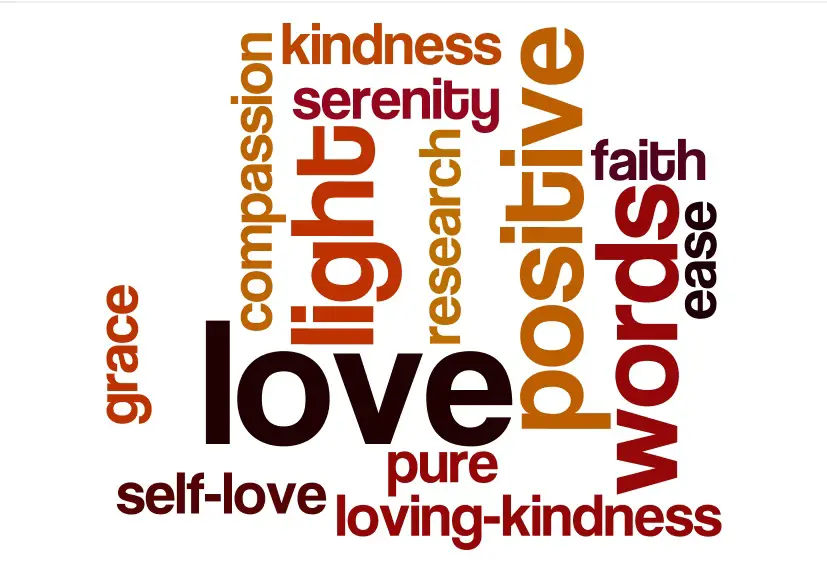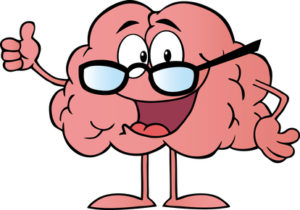Discover the power of positive words and how they can transform your mindset, overcoming negative thinking. Our comprehensive guide explores practical strategies for shifting your focus and enhancing your mental well-being through positive language. Ideal for those seeking to cultivate a more optimistic outlook and improve their overall quality of life. You can express your positive emotions with positive words, but you can also express your negative emotions, negating positive words. This way of thinking will make your brain happy and it is called positive thinking – thinking positively. This way of thinking is different than explaining positive emotions by negating negative words and explaining negative emotions with negative words. This way of thinking will make your brain unhappy and it is called negative thinking – thinking negative.
According to Positive Words Research, positive thinking means using positive words in your thoughts, either in affirmations or negations, in explaining your positive emotions or either in explaining your negative emotions. It is scientifically proven that thoughts have a significant impact on ourselves and the reality around us. Thoughts even travel long distances in the entire universe, influencing matter. See the scientific works of Nassim Haramein and his contribution to the project The Connected Universe that has forever changed the course of world science. We also know that a mature person mainly speaks with himself through thoughts formed of words. He thinks with images also but the inner dialog is frequently and constantly used by all adults. It has been scientifically proven that positive words and negative words influence the structure of the water. See the groundbreaking scientific experiments and discoveries of Masaru Emoto:
- How Words Influence Water? 2013 Scientific Experiment by Dr. Masaru Emoto – click here to read the article;
- Amazing Scientific Experiment on Water made by Dr. Masaru Emoto – click here to read the article;
- The Water’s Response To Positive Words – Scientific Experiment By Dr. Masaru Emoto – click here to read the article.
It has also been scientifically proven that our body consists of more than 60% water. Because our body is composed of up to 60% water, the words that are closest to us influence us significantly. What other words can be closer to us than our own words? It is scientifically proven that, through the mind of a mature person, is crossing almost 60,000 words every day. This equals to a book. Every day, every one of us thinks an entire book. These are a lot of words.

Our own thoughts give us a certain disposition, emotion, vibration which influence the reality around us. We interact with the reality every moment, while we think. We think that we can perceive. We think that we can explain things to ourselves. We call a brain that uses positive words in the thinking process a happy brain – the positive brain. Therefore the “method” through which we construct sentences in our brain is very important. The words that you use to talk with yourself, when you explain things to yourself is highly important. Also, the words that you use to build sentences in your brain ultimately, overall, make you have a “happy brain” or an “unhappy brain”. The brain, as an organ, has the ability to process words and the brain is happy when he bathes in “positive words” (pays with positive words to construct sentences) and unhappy the other way around. Negative words are hard, heavy for the structure of the brain, while positive words are lighter.

We call a brain that doesn’t use positive words in the thinking process an unhappy brain – the negative brain. You will see below why Positive Words Research considers that is not the use of negative words that makes a brain negative, it is the not using of the positive words that upset the brain so much. Please see below a combination of words that a happy brain is processing in comparison with words that an unhappy brain is processing. As a note: A happy brain makes you feel happy while an unhappy brain makes you feel… unhappy. See below two examples of ways that a happy brain expresses himself versus how an unhappy brain expresses himself. Compare each word in each line. Compare the words that the happy brain is using, with the words that the unhappy brain is using. Both brains try to explain the same thing but with different words. There are two examples to sustain this statement that reflect how the positive brain thinks versus how the negative brain thinks:
1. Explaining Positive Emotions
The Happy Brain
I am peaceful/ I am happy/ I feel at ease/ I love you/ I have energy/ I am healthy.
The Unhappy Brain
I am not anxious/ I am not sad/ I am not frustrated/ I don’t hate you/ I am not tired/ I am not sick.
2. Explaining Negative Emotions
The Happy Brain
I am not peaceful/ I am not happy/ I don’t feel at ease/ I don’t love you/ I don’t have energy/ I am not healthy.
The Unhappy Brain
I am anxious/ I am sad/ I feel frustrated/ I hate you/ I am tired/ I am sick.
Note that in both the above examples the happy brain is using positive words to express himself and the unhappy brain is using negative words. The happy brain is a positive brain while the unhappy brain is a negative brain.
Comparisons Between The Happy And The Unhappy Brain
- The happy brain – knows a lot of positive words also called abundance words (words that draw abundance). The unhappy brain – knows a lot of negative words also called lack words (words that keep the lack in your life).
- The happy brain – due to “being used to thinking in a certain way” the person with a happy brain will be pushed by his brain to create sentences mainly with the vocabulary of positive words. The unhappy brain – due to “being used to thinking in a certain way” the person with a happy brain will be pushed by his brain to create sentences mainly with the vocabulary of negative words.
- The happy brain – the person talks to himself mainly with sentences having positive words, he does not become conscious of the negative words, his brain is not noticing negative words in a text, talks less neutral because he likes to use positive words. The unhappy brain – The person talks to himself mainly with sentences with neutral words or negative words.
- The happy brain – the person talks to others with sentences having positive words; the person does not notice negative words and does not feel the need to use so many neutral words. The unhappy person talks to others with sentences with neutral words or negative words. He also tries to hold back from mentioning the negative words, which the person becomes aware of them a lot of times during a day.
- The happy brain – the person understands life through his vocabulary of positive words. The unhappy brain – the person understands life through his vocabulary of negative words.
- The happy brain – the person has knowledge of negative words but the words do not come to his brain to form sentences because the positive words occupy all of the main places in his brain. Positive words are always found in active consciousness. The unhappy Brain – the person has very little knowledge of the vocabulary of positive words. When you give to the person a paper and a pen and ask him to write positive words, he is unable to come up with many words, he only knows a very limited number of positive words.
What matters for the brain, in feeling good, is to focus and think daily positive words. Not thinking positive words is significantly worse than thinking negative words.
To put it in a funny way, you can swear as much as you want but make sure to use positive words every day and you will be OK. Your brain will be happy!
During our experiments, we also notice the following striking reality… on a not so funny note.
- Some of the people don’t know the notion of positive words.
- Most of the people know the notion of negative words but don’t know much about the notion of positive words.
- Most people search on the internet information about negative emotions, which are searched on Google using negative words, like depression, anxiety, hate, fear etc. And don’t think of looking on the internet for information about positive feelings and emotions, which are searched on Google using positive words, like compassion, loving-kindness, serenity. Even simple words like happiness, joy, beauty, magic, which could lift their spirit instantly are not searched by them, making them lack the necessary information to create their good vibe.
- Other people don’t know that there are lists of positive words on the internet that they can explore.
- Referring to the people that asked what positive words meanwhile being shown for the first time this list of positive words, they felt like they found an entire new happy world that they knew nothing about. Most probably so many positive words that also stand for many positive feelings and emotions made a huge impact on them.
- Most of the people make a separation between negative words and positive words and consider them as being in opposite categories. They consider that one part implies the other part. They say that negative words imply positive words and positive words imply negative words. But how could their brain know to imply loving-kindness when they hate, how could hate imply loving-kindness, how could loving-kindness imply hate, when your brain is familiar with the word hate but is not familiar with the word loving-kindness, is not familiar with words like blessings, blissfulness, gratitude, appreciation, self-love etc. From where should these words come to you if you don’t put them in your brain? It should come from words like anxiety, tension, stress, horrible, tragic, sad?
- Most people consider that by knowing a lot about depression, anxiety, fear, hate, tension, stress etc. they can eventually get rid of them and be happy. They don’t consider that they should stop researching depression and start researching happiness and other positive feelings like forgiveness, compassion, loving-kindness, peace of mind, equanimity etc. They are not aware that these positive feelings and emotions are keywords and that if they don’t know the name of the positive emotion, they have a gap and need to fill it by scanning a list of positive words.
Note: Currently, Positive Words Research is performing research called “mapping positive words with negative words”. The main benefit for this mapping is to know which positive words are the precise antidote for negative words, therefore knowing which positive emotion is the antidote of negative emotion.
Why not using positive words in your thinking is significantly worse than thinking negatively?
Not using positive words in your thinking is significantly worse than thinking negatively because you don’t know what positive feelings and emotions are out there in the world, you don’t know the potential of your human body. Positive words are keywords to attain well-being, keywords that you put in the Google search box to find and access information, keywords that you put in your brain to access your own well-being.
2 Comments
Tina · August 27, 2021 at 3:21 PM
such an easy thing to do, learn some positive words, improve your positive vocabulary and you can just think positive… education is again the secret to evolution
Julia · August 27, 2021 at 3:20 PM
never thought of this, that learning positive words can help you with improving positive thinking and stop negative thinking, thanks
Comments are closed.